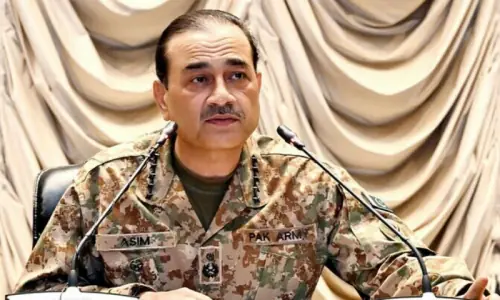A recently released UN report suggests there is “strong evidence” that top Pakistani military and intelligence officials approved US drone strikes on Pakistani soil during 2004 and 2008.
The study says in some cases, even “senior government figures” gave their approval to the strikes in the country’s militancy-hit tribal areas.
“There is strong evidence to suggest that between June 2004 and June 2008 remotely piloted aircraft strikes in the Federally Administered Tribal Areas were conducted with the active consent and approval of senior members of the Pakistani military and intelligence service, and with at least the acquiescence and, in some instances, the active approval of senior government figures,” says the report by Ben Emmerson, UN Special Rapporteur on human rights and counter-terrorism.
The report, however, does not elaborate on the details of the evidence collected.
Islamabad officially condemns US drone attacks as a violation of its sovereignty and counter-productive in the fight against terrorism and militancy.
In April this year, former military dictator Gen (Retd) Pervez Musharraf admitted in an interview to CNN that his government had given approval “only on very few occasions”.
Musharraf, who ruled over Pakistan until 2008 after coming to power in a bloodless coup as army chief of staff in 1999, said drone strikes were discussed and approved “at the military and intelligence levels” but only “two or three times”.
Together with a study by the UN Special Rapporteur on extrajudicial executions, Christof Heyns, Emmerson’s interim report will be debated at the UN General Assembly on October 25, 2013.
"In an apparent reference to Pakistan, Heyns’ report suggests consent from military or intelligence officials may not be enough to satisfy legal requirements for the US to conduct drone strikes on foreign territory, according to international, humanitarian and human rights law."
“Only the State’s highest government authorities have the power to give consent to use force. It is not sufficient to obtain consent from regional authorities or from particular agencies or departments of the Government,” says the report, which lays down the legal conditions for the use of drones in armed conflicts around the world.
The report adds that though consent may not necessarily be made public, it must be “clear between the States concerned that consent is being given to a use of force, and the parameters of that consent should also be made clear.”
“Once consent to the use of force is withdrawn, the State conducting the targeting operations is bound by international law to refrain from conducting any further operations from that moment,” it says, adding that states “cannot consent to violations of international human rights law or international humanitarian law on their territory.”
Emerson, during his international investigation into drone strikes and targeted killings, visited Pakistan in March this year and was provided with statistics by the Ministry of Foreign Affairs recording at least 330 drone strikes in Fata since 2004.
According to the numbers provided by the Pakistani government, US drone strikes have resulted in at least 2,200 deaths in Pakistan, out of which the government confirms at least 400 were civilians, with an additional 200 individuals regarded as “probable non-combatants.”
“Officials indicated that, owing to underreporting and obstacles to effective investigation, those figures [of civilian casualties] were likely to be an underestimate,” says the report.
Emmerson urged the United States to “release its own data on the level of civilian casualties” caused by drone strikes to increase the level of transparency on the controversial campaign.
The release of both reports coincides with Prime Minister Nawaz Sharif’s visit to Washington to meet US President Barack Obama.
A spokesman for the Sharif government says the Pakistani premier will raise the prickly issue of the Obama administration’s drone campaign in Pakistan's tribal areas.
































